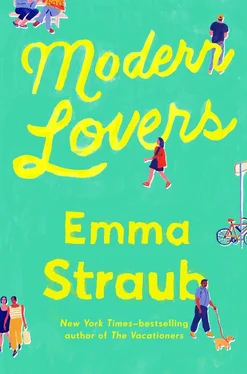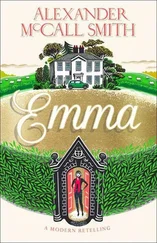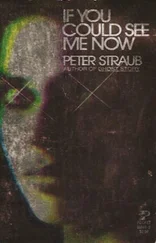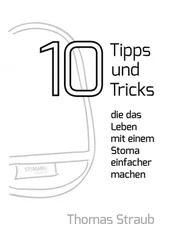“I will be calm calm calm calm calm ,” Elizabeth sang in a breathy shout. “I will be calm calm calm calm calm !” The words sounded funny coming out of her mouth. They had felt so vital at the time, as if a channel inside her had opened up and some beam of raucous feminist light was pouring through her — she wrote the lyrics in her notebook in her small, orderly handwriting, the letters getting messier as she wrote faster and faster. As soon as it was down on paper, Elizabeth knew it was good. She didn’t know — couldn’t have known — what would happen next, but she knew that the song was the best thing she’d ever done. Andrew snored. Elizabeth stared out at the street until Iggy Pop jumped off the windowsill, landing with a yowl on the hardwood floor, distraught that something was amiss. She picked up the cat, held his thin body against her sweaty chest, and climbed back into bed.
Jane had taken to sleeping in the guest room. Now that Ruby knew that they were having problems, problems that might actually end their marriage, it felt both better and worse in the house. She and Zoe didn’t have to pretend that everything was fine, but Jane had enjoyed pretending. She enjoyed it so much that she would often make it all the way through the day and evening and only remember when she got home after the dinner rush and Zoe glared at her from her spot on the couch. Jane couldn’t turn on the television; she couldn’t change the music. She could choose to sit quietly and not bother Zoe, but if Jane was on her laptop, getting work done, she’d get shit for that, too. It was as if Zoe thought that they were all just swimming through oceans of time, endless vast amounts of time. Who sat in one place for three hours reading a book? Maybe that’s why they were talking about getting divorced. Dr. Amelia, the couples therapist they’d seen years ago, said that all marriages went through rough spots, and that it didn’t mean the union was faulty or unsound. It just meant that you had to kick a few tires, or tighten some bolts, or adjust the seasoning. Dr. Amelia hadn’t been afraid of metaphors. Sometimes, when they were sitting on the low orange sofa in her office, Dr. Amelia would tilt her head back and go through long lists of them, trying to find the right one.
It wasn’t like the beginning, when they spent their days eating their way through the Chinese shopping malls in Queens, or when they opened Hyacinth and they were both on their feet fifteen hours a day, too exhausted to fight, or when Ruby was born and they were too in love to have to. Now Zoe spent so much time hunched over her computer, working on the payroll and the schedules and the billing, that Jane took it as a silvery stop sign. Somehow, now that they weren’t needed in the space every second of every day, instead of having more time together they had less. Jane went to dinners at the James Beard House by herself, she drank whiskey with the cooks after closing at the bar down the street. For the first time in her life, Zoe went to bed early. There were big problems and little problems, the latter of which seemed to multiply in the night like rabbits. Jane cared about Yelp comments too much, she drank too much. She didn’t care about Zoe’s friends. She didn’t care about her own friends. She didn’t have friends! She was too bossy, she wasn’t bossy enough. She didn’t care about Patti Smith. When they met, Zoe was wild, and Jane had felt like a steadying force — her sturdy body anchoring Zoe’s rangy limbs to earth. That’s what she still wanted to be. It wasn’t the word, or the feeling, of failure, which is what Jane’s mother was so mopey about, having to call her aunts and uncles and cousins, and tell them that it hadn’t worked. Her mother acted like it was an affront to Jane’s gayness, the divorce, like she’d been granted the right to vote and then slept through the election.
The guest-room bed was full size, a lumpy leftover futon. Until recently, they’d kept it folded up unless Ruby had a friend sleeping over, and then they’d drag the mattress onto the floor of her room and the girls could jump and flop all over it. Kids didn’t care. Jane cared. Her back felt terrible, and so did her knees. Standing up at the restaurant was bad enough, but sleeping on a piece of glorified cardboard was worse. Every morning, she rolled off to one side and had to come up through hands and knees, as if she’d just crawled across a desert. She felt like she was a hundred years old. Meanwhile, Zoe was always dipping in and out of Pilates classes. She’d been wearing makeup, a glittery dusting on her eyes, some bright pink on her lips. It was hard not to feel as though Zoe was dancing on her grave. It wasn’t as if Jane had ever kept Zoe from doing whatever she liked — it didn’t make sense. Jane liked it when things made sense. It wasn’t even a question of rocking the boat — Zoe was carving the boat in half with a chain saw. God, she was as bad as Dr. Amelia.
They were just moving into true summer — tomatoes were perfect, round and sweet. Soft-shell crabs were perfection. Corn was everywhere, so fresh you could just peel the silk back and eat the kernels right off the cob. Hyacinth was less busy in July and August, when so many people left the city, but June was still brisk, and Jane woke up thinking of specials to add to the menu. She almost always opened her eyes to visions of food — not breakfast, never breakfast — things she could serve at the restaurant. A dessert with strawberries and peppercorns. A salad with enormous watermelon radishes and fat wedges of avocado. Fresh pasta with asparagus pesto. And then she’d think about Zoe.
They’d always talked about what would happen when Ruby left home — when she was little, it seemed like a hilarious nightmare, the idea that this tiny, helpless creature would ever be able to pay her own bills or pull open the fridge door. When she was five or six and in school every day, Zoe had flipped out. At first, it was thrilling — so many hours in the day! such freedom! — but then she began to complain about how much time Ruby was spending with other adults, worrying that she was going to be influenced by them. “They’re teachers ,” Jane would tell her. “That’s what we’re paying them for.” It didn’t matter — Zoe was always five or ten minutes early to pick Ruby up, pacing back and forth in front of school, as if she thought that her daughter might have forgotten her in the hours she’d been gone. In those years, Zoe clung to Jane like a loving barnacle. They were a power couple, rich in kale and quinoa and fizzy glasses of rosé.
Jane rolled onto her side. The ceiling fan was on, whirring around in circles. The house was quiet, but there was some construction going on outside. Jane could have sworn there used to be rules about jackhammers on weekends, but there they were. It was so strange to be in her house, sleeping in another bed. She felt embarrassed, and ridiculous. What did any of this have to do with sleeping arrangements, anyway? All she wanted was her normal, easy life. She thought it wasn’t anything they couldn’t fix. Maybe once Ruby left home, things would be easier. There would be more space for them to talk — to argue, even. It wasn’t as if Zoe was prone to the idea of divorce — her own parents had stayed married through the seventies and eighties and cocaine and all the rest. They were still married and drank gin and tonics together in front of the fireplace, though Los Angeles was usually too warm for them to turn it on. Jane loved Zoe’s parents for many reasons, but that’s what it boiled down to — she loved that they were happy, utterly devoid of neuroses.
She and Zoe were a mixed marriage, both racially and religiously speaking — Jane was a Jew from Long Island who’d been taking ulcer medication since she was a teenager, and Zoe was a Martian who never worried about anything, who believed that Chaka Khan played everyone’s sweet sixteen. They’d always balanced each other out, but now Jane felt like instead of balance, she’d just been a brick tied to Zoe’s ankle, a rusty anchor trying to drag her under. Maybe, after all this time, it turned out that Zoe was right, that working hard and having fun were all that mattered, and everything else should just vanish in a puff of smoke. Ruby’s clothes, Ruby’s grades? The server at the restaurant who was always high, like Hyacinth was the Odeon and Bret Easton Ellis was about to walk in the door? Her mother’s latest fight with her postal worker about how she was stealing her magazines? She wanted to let it all go. All Jane wanted was to look at Zoe’s beautiful face every day for the rest of her life.
Читать дальше












